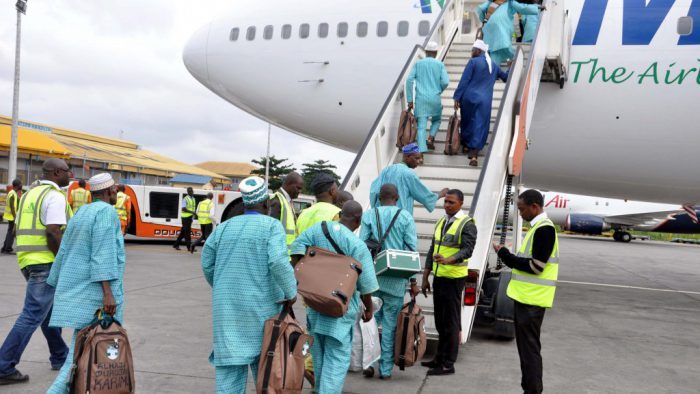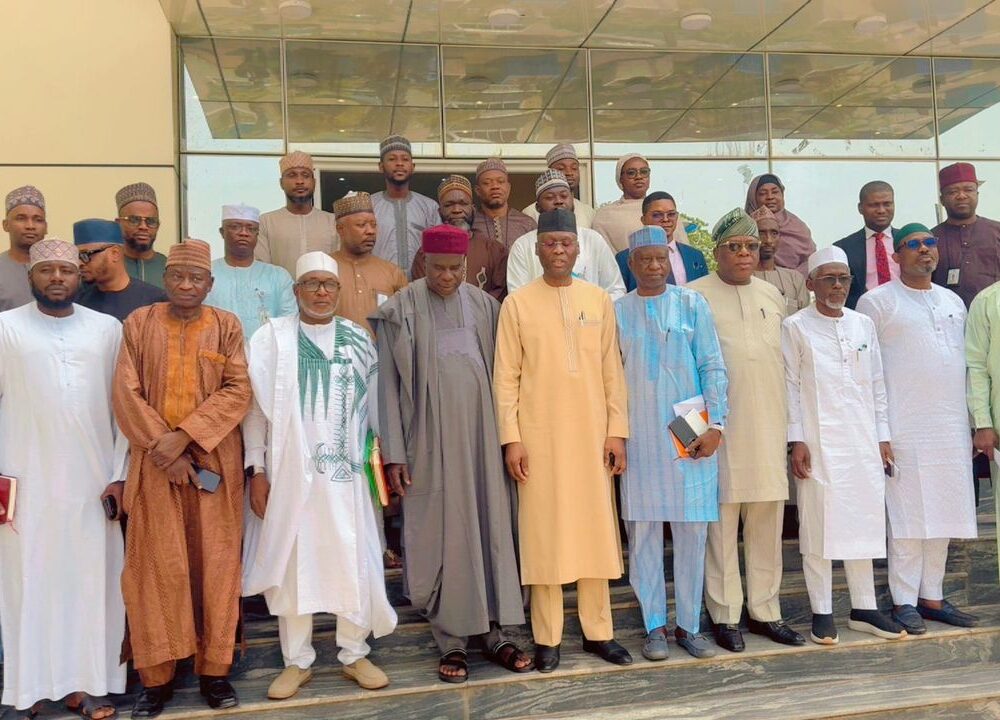In the name of Allah, the Most Merciful, the Bestower of Mercy
All praise is due to Allah, the Lord of all creation—may He extol the Messenger in the highest company of Angels and send His peace and blessings upon him—likewise upon his family, Companions, and true followers.
Dear brothers and sisters! Faith (Iman) and Allah-consciousness are reasons for test and trials. And the reward for steadfastness in them is paradise (Jannah) as vast as the heavens and the earth. Paradise (Jannah) is surrounded by the disliked just as Hell is surrounded by the desires. The best of creation, the Messengers and Prophets (Peace be upon them), were the most severely tested. The trials they faced are unbearable for others. As Allah Almighty says in the Qur’an:
“Or do you think that you will enter Paradise while such [trial] has not yet come to you as came to those who passed on before you? They were touched by poverty and hardship and were shaken until [even their] Messenger and those who believed with him said, “When is the help of Allah?” Unquestionably, the help of Allah is near.” [Qur’an, 2: 214]
When the Prophet Muhammad (Peace be upon him) was asked which of the people is tried the most severely, he replied:
“The Prophets, then those nearest to them, then those nearest to them. A man is tried according to his religion; if he is firm in his faith (Iman), then his trials are more severe, and if he is frail in his faith (Iman), then he is tried according to the strength of his faith (Iman). The servant shall continue to be tried until he is left walking upon the earth without any sins.” [At-Tirmidhi]
In the month of Shawwal in the fifth year of the Hijrah, the Prophet Muhammad (Peace be upon him) and his noble companions, may Allah be pleased with them, faced a severe trial. The Arabs besieged them in one united front. And multitudes of polytheists gathered against them. And they encountered the treachery of the tribe of Banun-Nadir and the abandonment of the hypocrites, in an incident called the Battle of the Ahzab (confederates). And clear verses were revealed, describing its severity and hardship, that will be recited until the end of time.
Quraish sought revenge for their defeat in Badr, and were encouraged by a group from Banun-Nadir, who were bitter about being expelled from Madinah to Khaibar for breaking their treaty with the Muslims. A group from Banun-Nadir went to Makkah to encourage the polytheists (Mushriks) to attack Madinah. Then a delegation went to the Ghatfan tribe, one of the largest tribes of Central Arabia at the time, and enticed them to ally with the polytheists for half the produce of Khaibar. Many tribes, including Ashja’, Bani Sulaim, Bani Murrah, Bani Kinanah, and the people of Tuhamah, joined this large assembly, referred to by Allah as Al-Ahzab (the Confederates), aiming for Madinah. When the Prophet (Peace be upon him) learned of their approach, he consulted his companions. Salman the Persian, may Allah be pleased with him, suggested digging a trench (Al-Khandaq) to prevent the polytheists from reaching Madinah, which the Muslims did.
Along with the fear of their enemy, and the onslaught of the polytheists, they were faced with severe starvation and painful hunger as they dug the trench. As this happened during winter, it was cold. And the cold of winter can only be alleviated by food, but there was no food. Digging is hard and exhausting, and a hungry person cannot do it. They were beset by a lack of means, intense hunger, and fear of the enemy. Anas may Allah be pleased with him, said, in describing the food that came to them while they were digging the trench:
“They were brought a handful of barley which was cooked in stale, rancid fat, that was placed before the hungry people. And it had an unpleasant taste and was difficult to swallow and had a foul odour.” [Bukhari]
This toiling and hunger continued for several days, with them finding nothing to eat, to the extent that they tied stones to their bellies, as happened to the Prophet (Peace be upon him). Jabir, may Allah be pleased with him, said:
“On the day of the trench (Al-Khandaq), we were digging and came across a large rock. We went to the Prophet (Peace be upon him) and said, ‘This rock is blocking our work in the trench.’ He said, ‘I will come down.’ Then he stood up, his belly was braced with a stone (to ease the pain of hunger). We stayed for three days without tasting anything.” [Bukhari]
The trials continued and their afflictions intensified. While they were in this difficult situation, a rumour spread among the people that the Banu Quraizah, within the city, had broken their treaty with the Prophet (Peace be upon him) and were planning to ally with the polytheists against the Muslims.
When the Prophet (Peace be upon him) confirmed this news, he said:
“Allah is the Greatest, rejoice, O community of Muslims.”
It is good tidings due to the severity of the trial, and optimism in the nearness of what Allah Almighty has promised despite the great distress and the dire situation.
Such was the Prophet’s unwavering certainty in Allah Almighty, regardless of the extent of the hardship, the severity of the distress, and the intensity of the trial.
Added to these trials and tribulations that came successively upon the Muslims, hardship after hardship, one after the other, each new one making them forget the previous one, was the emergence of hypocrisy (Nifaq). And the betrayal of the hypocrites in the midst of the Muslim community. And attempting to demoralise the Muslims by spreading rumours and fear about the strength of the polytheists, and by openly withdrawing from the army. To the point that the spokesman for the hypocrites said:
“Muhammad promised us the treasures of Kisrah (Khosrow) and Caesar, yet one of us cannot even go to relieve himself (out of fear).”
Another said:
“Our homes are exposed to the enemy, so give us permission to return home.”
It was a great trial and severe distress, that could only be withstood by those strong in faith and certainty, along with fortification from Allah and His strengthening their hearts. Imagine the combination of fear and hunger on the weak human psyche, a fierce enemy besieging the city intent on annihilating the Muslims, outnumbering them by threefold, an internal enemy determined to break the pact and betray the Muslims, and the rejoicing hypocrites revealing their true colours. Who could stand firm in the face of such an immense trial and face these successive tests with steadfastness and certainty?
The Qur’an precisely and eloquently describes this great trial and the severe distress that befell the believers:
“[Remember] when they came at you from above you and from below you, and when eyes shifted [in fear], and hearts reached the throats, and you assumed about Allah [various] assumptions. There the believers were tested and shaken with a severe shaking.” [Qur’an, 33: 10-11]
Yes, eyes shifted in fear due to the severity of calamity and distress, and hearts went out of their places due to fear and fright. This is the natural fear of human beings, regardless of who they are.
Allah Almighty recounts the statements of the hypocrites intended to spread fear and weaken the believers, while strengthening the disbelievers:
“And [remember] when the hypocrites and those in whose hearts is disease said, “Allah and His Messenger did not promise us except delusion,” And when a faction of them said, “O people of Yathrib, there is no stability for you [here], so return [home].” And a party of them asked permission of the Prophet, saying, “Indeed, our houses are exposed [i.e., unprotected],” while they were not exposed. They did not intend except to flee.” [Qur’an, 33: 12-13]
The hypocrites thought the Muslims would be annihilated, but the believers were certain what Allah Almighty promised them was true and that He Almighty would make them prevail, even if the polytheists disliked it.
With the intensification of the trial, and the severity of distress, came relief from Allah Almighty. Discord and disagreement broke out and spread among the Confederates, and unity turned into disunity. Then the Confederates disbanded and dispersed.
Respected brothers and sisters! The Battle of the Trench (Al-Khandaq) was a difficult trial and test, which the true believers passed, while the hypocrites failed. Qur’anic verses were sent down to expose the hypocrites and reveal their hidden flaws, and praise the believers for their patience and steadfastness, and for facing these trials with contentment and submission to Allah, Lord of the worlds.
It is noteworthy that the verse commanding following the Prophet (Peace be upon him) is interspersed within the verses that describe this battle and its details:
“There has certainly been for you in the Messenger of Allah an excellent pattern for anyone whose hope is in Allah and the Last Day and [who] remembers Allah often.” [Qur’an, 33: 21]
Imam Ibn Kathir, may Allah have mercy on him, said:
“This noble verse is a great basis for following the Messenger of Allah (Peace be upon him) in his words, actions, and conditions. This is why, Allah Almighty commanded people to emulate the Prophet’s patience, perseverance, striving and waiting for relief from his Lord, Almighty and Majestic, on the Day of the Confederates.”
In the next verse, Allah Almighty describes His believing servants who believe in Allah’s promises and the good outcomes that they will attain in this world and the hereafter. Allah Almighty said:
“And when the believers saw the companies, they said, “This is what Allah and His Messenger had promised us, and Allah and His Messenger spoke the truth.” And it increased them only in faith and acceptance.” [Qur’an, 33: 22]
Ibn Abbas, may Allah be pleased with them, and Qatadah said they meant Allah’s words in Surah Al-Baqarah:
“Or do you think that you will enter Paradise while such [trial] has not yet come to you as came to those who passed on before you? They were touched by poverty and hardship and were shaken until [even their] Messenger and those who believed with him said, “When is the help of Allah?” Unquestionably, the help of Allah is near.” [Qur’an, 2: 214]
Dear servants of Allah! How much Muslims, in these our trying times, need to study the life of the Prophet (Peace be upon him) and be certain that what they endure of harm, trials, disasters, calamities, afflictions or tests, was even more severe for the early Muslims. They remained patient and steadfast in their faith (Iman), and did not change or alter to please anyone, regardless of their power or their threats and intimidation. Allah Almighty granted them a good outcome in this world with victory and support, and was pleased with their actions so He pleased them, and was pleased with them.
So whatever calamities, trials, tests and afflictions that we face today, whether major or minor, whether on an individual, community, state or national level, whether psychological or physical, whether in health or wealth, let us emulate our beloved Prophet Muhammad (Peace be upon him) in remaining optimistic, and remaining steadfast upon our faith (Iman) and having certainty in the good outcomes for the believers in this world and the next.
All praise is due to Allah, Lord of the worlds. May the peace, blessings and salutations of Allah be upon our noble Messenger, Muhammad (Peace be upon him), and upon his family, his Companions and his true and sincere followers.
Murtadha Muhammad Gusau is the Chief Imam of: Nagazi-Uvete Jumu’ah Mosque; and Late Alhaji Abdur-Rahman Okene Mosque, Okene, Kogi State, Nigeria. He can be reached via: gusauimam@gmail.com; or +2348038289761.
This Friday sermon (Jumu’ah Khutbah) was prepared for delivery today Friday, Jumada al-Thani 08, 1445 AH (December 22, 2023).





